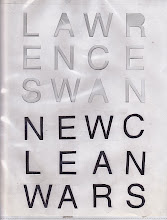Yeshua/Jesus
"Jesus said to them, "Have you never read in the scriptures: 'The stone that the builders rejected has become the cornerstone; this was the Lord's doing, and it is amazing in our eyes'?"
This was how Jesus concluded his parable of the wicked tenants, told in last week's reading: Jesus takes Jerusalem. This quote takes us to Psalm 118 where we also find the poetic source for Jesus' entrance through a gate in a festal procession that is "bound" with branches brought by people shouting "Hosanna!" -- "Save us!" and the announcement "Blessed is the one who comes in the name of the Lord."
"Hosanna," or "Hoshianna" is etymologically related to the name of the mythical warrior and national hero "Yehoshua," which means "Yahweh is salvation."
One of the most significant things the Gentiles did in their goyification of the new Jewish sect was to change "Yeshua" - the Aramaic form of Joshua - to "Iesous" - a Greek approximation - and eventually to the Brit "Jesus".
Here is the Wikipedia article on Joshua. Joshua was Moses's successor who led the Israelites through a miraculous parting of the Jordan River (Where Yeshua called the Messiah was baptized), winning the miraculous battle of Jericho and bringing the Israelites to the Promised Land. When first century Yeshua led his followers from Galilee to Judea beyond the Jordan he engaged with debate against the Pharisees and opened the eyes of a blind man in Jericho. JesusYeshua's cultural/political warfare was a teaching that emphasized the ethical, rather than the ritual, interpretation of the Law and called for a redistribution of the wealth that was held by the ruling class. This is what I believe is an essential part of his good news of the kingdom or community of heaven, as it is also an essential part of the teaching of the Jewish prophets Yeshua and his followers cited over and over.
When JesusYeshua led his army of children, prostitutes, fishermen, and tax collectors into Jerusalem, he cleared the money changers and sellers of cheap sacrificial doves out of the temple and confronted the priests and rabbis, arguing with them about the purpose and meaning of the Law and telling parables about the fall of their established order.
Parable of the Wedding Banquet
If the bridegroom is the Messiah, is the king God? And who is the inappropriately attired guest? In Luke's version of this story it is a dinner, but not for a wedding, and the part about the guest who didn't wear the right clothes isn't there. A footnote in one of the Bibles I read suggests that at least two parables were combined in the Matthew version.
Paying taxes to the emperor
Yeshua's response to the Pharisees about paying taxes to Caesar is often read as having a deeper significance, since humans are created in Yahweh's image we are to give ourselves to the creator. Compare this exchange with that between Yeshua and Peter concerning the temple tax, which was instituted in Exodus 30:13. Every male, rich and poor, were to pay a half shekel each year for upkeep of the temple. Yeshua agrees to pay to not give offense to "them," but suggests those in the kingdom of heaven do not owe it. He has Peter find a shekel that will cover both of them in the mouth of a fish. Since Exodus 30:16 says this offering is for atonement: "You shall take the atonement money from the Israelites and shall designate it for the service of the tent of meeting: before the Lord it will be a reminder to the Israelites of the ransom given for your lives." So, the coin in the fish might be some reference to Jonah, whose story is traditionally read on the Day of Atonement, and whose "sign" is the only one given to this generation. Still obscure to me now, but interesting.
Question about resurrection from some Sadducees, who did not believe in resurrection. His argument that in the resurrection they would be like angels in heaven is to show that human relations will not obtain. The rest of his answer might seem sophistical in its reading of scripture, but "I am the God of Abraham, the God of Isaac, and the God of Jacob" was how Yahweh identified himself to Moses from the burning bush and it is the eternal nature of "I AM" that was considered essential in that revelation. This was enough to amaze the crowds.


0 Comments:
Post a Comment
<< Home